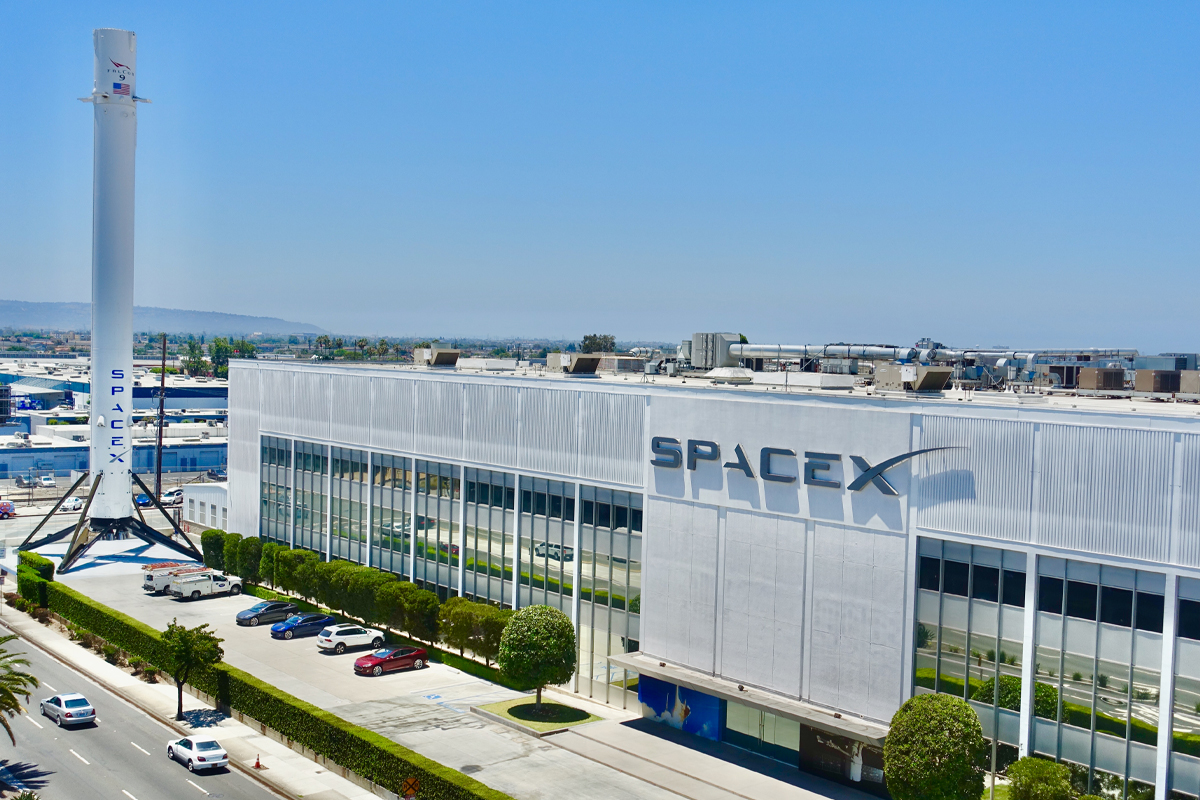Pentagon Taps SpaceX, ULA, Blue Origin for $13.5B Rocket Deal
The U.S. Space Force has awarded $13.5 billion in launch contracts to SpaceX, United Launch Alliance, and Blue Origin through 2029, solidifying the trio as America’s top-tier military space launch providers. SpaceX leads with 28 missions, further tightening its grip on national security space.

The U.S. military’s future in space is now firmly in the hands of three private space companies. On Friday, the U.S. Space Force awarded a massive $13.5 billion in rocket launch contracts to Elon Musk’s SpaceX, the Boeing-Lockheed Martin joint venture United Launch Alliance (ULA), and Jeff Bezos’ Blue Origin. This deal, which spans through 2029, is part of the National Security Space Launch (NSSL) program’s third and most competitive phase—an effort to bolster America’s strategic edge in space by securing reliable access for the nation’s most sensitive and complex satellite missions.
SpaceX emerged as the biggest winner, locking in $5.9 billion for 28 missions. ULA followed with $5.3 billion and 19 missions, while Blue Origin, a newcomer to the national security launch landscape, was awarded seven missions totaling $2.3 billion. The missions will be assigned incrementally, but sources familiar with the process say SpaceX is set to handle the majority of the first-year assignments.
That comes as no surprise. With its fleet of Falcon 9 rockets and the heavy-lift Falcon Heavy—essentially three Falcon 9 cores strapped together—SpaceX has built an unmatched launch cadence. It’s not only the most active commercial launch provider in the world, but also a trusted go-to for military space operations. The company’s ability to reuse rockets has made it a cost-efficient powerhouse, something federal agencies struggling with budget constraints can’t ignore.
SpaceX's rise, however, hasn’t occurred in a vacuum. Elon Musk has wielded considerable influence in Washington, not just through his government contracts, but also as a special government employee with access to federal leadership. His voice has been present in reshaping procurement policy and trimming bureaucratic inefficiencies. While that influence has at times sparked controversy, there’s no disputing that SpaceX’s technical dominance has earned it a front-row seat in America’s defense infrastructure.
The deal also marks a comeback moment for United Launch Alliance. Once the undisputed king of U.S. national security launches, ULA has faced stiff competition from SpaceX in recent years. Its latest rocket, Vulcan Centaur, struggled through development delays and a high-profile mishap with its solid rocket boosters, resulting in the Pentagon transferring some of its previously awarded Phase 2 missions to SpaceX. But with Vulcan now certified for national security missions following its first two launches last year, ULA is back in the game. CEO Tory Bruno emphasized the rocket’s readiness, calling Vulcan “the right choice for critical national security space missions.”
Meanwhile, Blue Origin’s inclusion in the program represents a significant milestone for Jeff Bezos’ space venture. Though its New Glenn rocket has only launched once—just this January—the company’s $2.3 billion award signals the Pentagon’s intent to cultivate a broader base of launch providers. Despite its limited flight record, Blue Origin’s entry into the elite “Lane 2” track of the NSSL program suggests the government sees long-term potential in diversifying its launch assets. Lane 2 is reserved for the most technically demanding missions: those involving complex orbits, direct injection payloads, and time-critical delivery windows. Only the most experienced and capable U.S. launch companies were invited to compete, underscoring the strategic significance of Friday’s awards.
Still, experience matters. In the earlier Phase 2 of the program, SpaceX won 40% of missions, while ULA took the remaining 60%, together accounting for over $6 billion in combined awards. But when Vulcan delays left ULA unable to meet delivery timelines, SpaceX absorbed several of its missions. That performance gap hasn’t gone unnoticed—and Musk made sure to highlight it.
“Winning 60% of the missions may sound generous, but the reality is that all SpaceX competitors combined cannot currently deliver the other 40%!” Musk posted on X, his social media platform. “I hope they succeed, but they aren’t there yet.” His statement, part celebration and part jab, captured the sentiment shared by many in the aerospace sector: that SpaceX’s sheer reliability and speed have put it in a league of its own.
At a time when space is increasingly seen as a critical battleground—where satellites serve as the backbone of communication, surveillance, navigation, and early-warning systems—the Pentagon’s decision reflects more than just cost and capacity. It’s a strategic move to ensure the United States maintains unbroken, secure access to space in an era of escalating orbital competition, particularly with China and Russia advancing their military space capabilities.
In choosing SpaceX, ULA, and Blue Origin, the U.S. government is both rewarding past performance and betting on future resilience. It’s an acknowledgment that America’s space defense no longer rests solely on government-owned systems, but on public-private partnerships with companies that can deliver under pressure, innovate on the fly, and keep the nation one step ahead in the ever-expanding domain of space.










